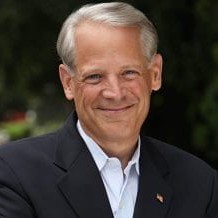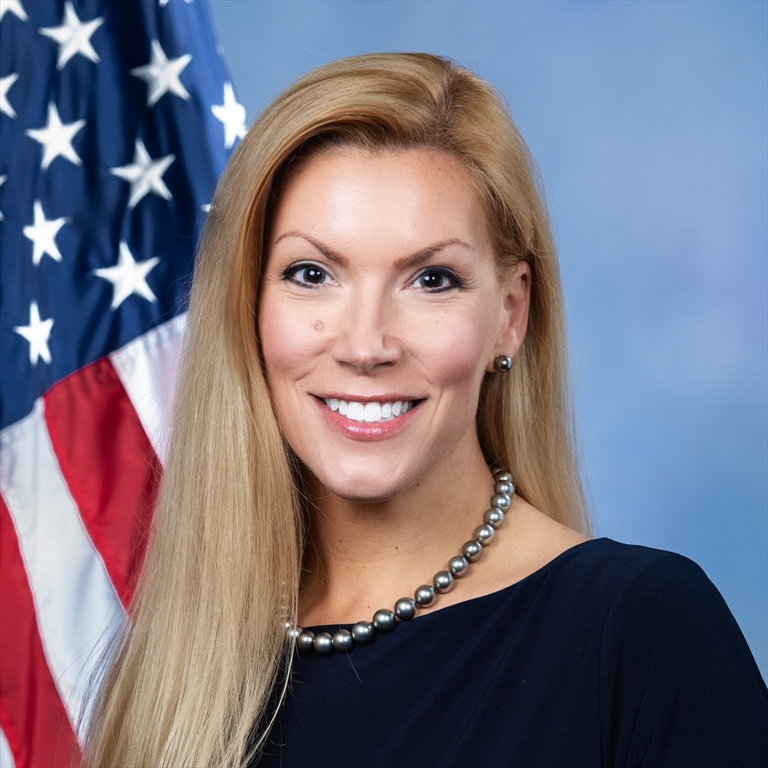Return to the Classroom: Democracy in America—From Cornell to Capitol Hill: Bipartisan Consensus in a New Administration
Date
February 23, 2021 @ 7:30 pm
Venue
New York City, NY

February 23, 2021 @ 7:30 pm
New York City, NY
Tune in to hear expert Cornell panelists for a post-election follow-up. This is the 3rd in a series of Democracy in America programs. You’ll learn how Republicans and Democrats can work together to advance the most pressing policy issues facing the new administration and America.
Co-hosted by the Northeast Corridor Office of Alumni Affairs and Development and the Institute of Politics and Global Affairs.
Event Details:
Date: Tuesday, February 23, 2021
Time: 7:30 – 8:45 p.m. EST
Format: Panel discussion and audience Q&A
Location: Online, viewing link provided upon registration
Speakers:
About our speakers:
 Moderator – Dr. Basil Smikle Jr., ILR ’93, is a Professor at Rutgers University-Newark in the School Public Affairs and Administration and lectures at Columbia University’s School of International and Public Affairs and Teachers College. He was most recently the Distinguished Lecturer of Politics and Public Policy at the City University of New York’s School of Labor and Urban Studies. He holds a PhD in Politics and Education and an MPA from Columbia University, and received a Bachelor of Science from Cornell University. With over 15 years in higher education and 25 years of a career dedicated to public service, Basil regularly shares insights on electoral politics, governance, and public policy on national media outlets such as MSNBC, CNN, and Bloomberg TV.
Moderator – Dr. Basil Smikle Jr., ILR ’93, is a Professor at Rutgers University-Newark in the School Public Affairs and Administration and lectures at Columbia University’s School of International and Public Affairs and Teachers College. He was most recently the Distinguished Lecturer of Politics and Public Policy at the City University of New York’s School of Labor and Urban Studies. He holds a PhD in Politics and Education and an MPA from Columbia University, and received a Bachelor of Science from Cornell University. With over 15 years in higher education and 25 years of a career dedicated to public service, Basil regularly shares insights on electoral politics, governance, and public policy on national media outlets such as MSNBC, CNN, and Bloomberg TV.
Previously, Basil was appointed by Governor Andrew Cuomo and Former Governor David Paterson to serve as the Executive Director of the New York State Democratic Party where he was the “second highest ranking Democrat†in the State. Basil worked closely with elected officials and community leaders to manage electoral and fundraising strategies for the State. He recruited candidates for political office and worked closely with the Democratic National Committee to create grassroots mobilization programs and act as a Party surrogate during the 2016 cycle. Under Basil’s leadership, Democrats flipped county legislatures, and county-wide seats – laying the foundation for returning the State Senate to full Democratic control in 2018 and flipping three Congressional seats.
Basil was a senior aide to Hillary Rodham Clinton on her Senate staff where he advised Senator Clinton on state-wide policy and politics. His work and collaboration had a substantial impact on the State of New York….Mrs. Clinton called Basil a “key advisor and tremendous public servant…who makes sure all voices are heardâ€.
 Congressman Steve Israel, Director, Cornell Institute of Politics and Global Affairs and Former Member of Congress (2001-2017). Israel left Capitol Hill – unindicted and undefeated – to pursue a career as a writer. In addition to writing two critically acclaimed satires of Washington, he heads the non-partisan Cornell University Institute of Politics and Global Affairs in New York City.
Congressman Steve Israel, Director, Cornell Institute of Politics and Global Affairs and Former Member of Congress (2001-2017). Israel left Capitol Hill – unindicted and undefeated – to pursue a career as a writer. In addition to writing two critically acclaimed satires of Washington, he heads the non-partisan Cornell University Institute of Politics and Global Affairs in New York City.
Israel was a Member of Congress for sixteen years. He left in 2017, having served as House Democrats chief political strategist between 2011-2015 as Chairman of the Democratic Congressional Campaign Committee. President Bill Clinton called him “one of the most thoughtful Members of Congress.” Which, Israel states, isn’t really saying much at all.
Israel is a regular political commentator on MSNBC. His insights appear regularly in The New York Times, The Atlantic Magazine, as well as The Washington Post and Wall Street Journal. He was profiled on HBO’s Last Week Tonight with John Oliver and appeared on CBS’ Sixty Minutes.
Israel is currently the Director of the new nonpartisan Institute of Politics and Global Affairs at Cornell University, the only academically-based institute of politics in the New York City metropolitan area. Its mission is to raise the discourse and deeper understanding of political issues and geopolitics. He also served as a Tisch College Visiting Fellow at Tufts University, where he taught a course called “Topics in American Politics: Inside Congress and the 2018 Midterm Elections,” and as an Institute of Politics Pritzker Fellow at the University of Chicago, where he taught a student-only and off-the-record seminar with former Congressman Tom Davis, who served on the other side of the aisle as the Chairman of the National Republican Congressional Committee (NRCC) from 1999 to 2003.
 Congresswoman Beth Van Duyne A&S ’95 proudly represents the 24th Congressional District of Texas in the U.S. House of Representatives, which includes portions of Tarrant, Denton, and Dallas counties. Prior to being elected to Congress, Beth served as Regional Administrator for the U.S. Department of Housing and Urban Development (HUD), Mayor of Irving, Irving City Council Member, and a businesswoman.
Congresswoman Beth Van Duyne A&S ’95 proudly represents the 24th Congressional District of Texas in the U.S. House of Representatives, which includes portions of Tarrant, Denton, and Dallas counties. Prior to being elected to Congress, Beth served as Regional Administrator for the U.S. Department of Housing and Urban Development (HUD), Mayor of Irving, Irving City Council Member, and a businesswoman.
In 2017, Beth was appointed to serve as the Regional Administrator for the U.S. Department of Housing and Urban Development’s Southwest Region. Working under Secretary Ben Carson, Beth was tasked with overseeing HUD programs and operations in the Region’s five states of Arkansas, Louisiana, New Mexico, Oklahoma and Texas, where she worked on many of the Trump Administration’s proudest economic successes, such as opportunity zones, and led HUD’s disaster recovery efforts at the southwest border in the aftermath of Hurricane Harvey.
Before being named Administrator, Beth was the first woman elected to serve as the Mayor of Irving from 2011 to 2017 after beginning her career in public service as an Irving City Council Representative from 2004 to 2010. Under her leadership, the City of Irving witnessed unprecedented economic growth and development with an added 40,000 jobs and an estimated $3 billion in growth and new developments while also being named the fifth safest city in America.
During her tenure as Mayor, Beth represented the city on a number of boards, including the U.S. Conference of Mayors, National League of Cities and Texas Municipal League. Beth also served as Texas Chair of Community Leaders of America. As a Board Member for the Dallas-Fort Worth (DFW) International Airport, Beth oversaw operations at the busiest airport in the United States, ensuring safe and efficient travel for millions of Americans flying through DFW each year.
Throughout Beth’s career, she has worked with small startup companies, mid-size private companies and Fortune 500 corporations alike. Beth also ran a consulting business where she helped executives develop strategic business plans as well as negotiation strategies, grassroots coalition building and federal and state legislative policy strategies.
After graduating magna cum laude from Cornell University, Beth moved to Irving, Texas, which has been her home for over 30 years. Single mother to Katie and Pearce, Beth was only the second Republican woman from Texas to be elected to the U.S. House of Representatives.
Michael Macy, Sociology/Information Science, is the Goldwin Smith Professor of Arts and Sciences and Director of the Social Dynamics Laboratory at Cornell. Michael Macy received his B.A. and Ph.D at Harvard, along with an M.A. from Stanford. He is currently Goldwin Smith Professor of Arts and Sciences in Sociology and Director of the Social Dynamics Laboratory at Cornell, where he has worked since 1997.
With major support from the National Science Foundation, his research team has used computational models, online laboratory experiments, and digital traces of device-mediated interaction to explore familiar but enigmatic social patterns, such as circadian rhythms, the emergence and collapse of fads, the spread of self-destructive behaviors, cooperation in social dilemmas, the critical mass in collective action, the spread of high-threshold contagions on small-world networks, the polarization of opinion, segregation of neighborhoods, and assimilation of minority cultures. His team has used data from Twitter and Spotify to track diurnal and seasonal mood changes across the globe, national telephone logs to measure the economic correlates of network structure, and both social media and phone logs to reveal “social wormholes” that create high-bandwidth connections across vast network distances.
Recent research has focused on political polarization, including a study on why liberals drink lattes and how polarization extends even to the consumption of books on popular science. His team’s research has been published in leading journals, including Science, PNAS, Nature Human Behaviour, Science Advances, American Journal of Sociology, American Sociological Review, and Annual Review of Sociology.